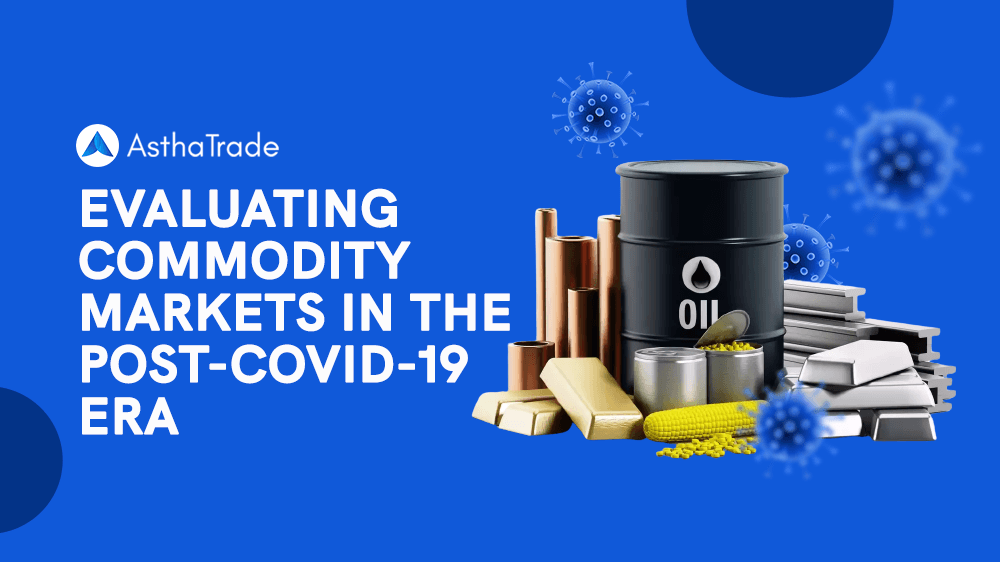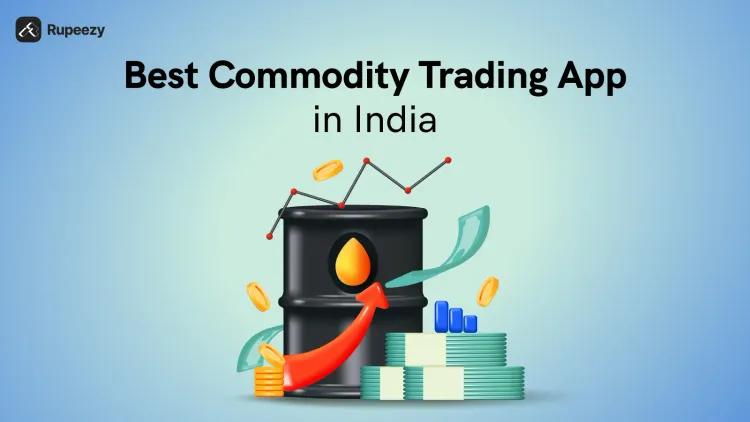Commodity Market Time in India (MCX, NCDEX, ICEX and More)


00:00 / 00:00
The commodity market in India has gained immense popularity over the past few years, fueled by increasing awareness among investors and improvised trading technology. With electronic trading platforms, the participation of retail investors has increased along with reforms in regulations by SEBI, making commodities such as gold, crude oil, and agricultural products accessible and attractive investments.
Understanding commodity market timings in India is crucial for players such as farmers, traders, investors, and exporters as they go a long way in formulating the trading strategy and making market dynamics clear.
In the article, we discuss the commodity market time of India's foremost commodity exchanges along with the time of various segments, MCX holidays, and factors impacting the commodity market timing.
Understanding Commodity Market
A commodity market is a place where people trade essential goods and raw materials like gold, silver, crude oil, agricultural products, and base metals. It's where buyers and sellers connect to exchange these commodities, either through direct cash deals or futures contracts.
These markets play a very vital role in linking producers and consumers. Producers can sell their goods and protect themselves from sudden price changes, while consumers can buy what they need at competitive prices. Commodity markets can be operated physically, where there is actual delivery of goods, or through futures trading, where the transactions are settled on a future date.
Commodities can be categorized into four main types:
Energy: This will include commodities such as crude oil, natural gas, coal, and renewable energy resources.
Bullion: Bullion is precious metals, including gold, silver, platinum, and palladium.
Base Metals: Metals such as copper, aluminum, zinc, lead, and nickel come under this head.
Agricultural Commodities: These include wheat, rice, corn, cotton, coffee, sugar, and spices.
Commodity Exchanges In India
The commodity exchanges in India are:
Multi Commodity Exchange of India Ltd. (MCX)
National Commodity and Derivatives Exchange Ltd (NCDEX)
Indian Commodity Exchange Ltd (ICEX)
National Stock Exchange (NSE)
Bombay Stock Exchange (BSE)
Among them, MCX is the largest commodity exchange in India with a market share of 95% of commodities traded on Indian exchanges.
Commodity Market Timings in India
Special Session / Pre-Market Session:
Monday to Friday: 8:45 AM to 8:59 AM
A special Session also called as order cancellation session is held to cancel the pending orders before the opening of the market.
Normal Session:
The normal commodity market timings are from 9:00 AM to 11:30 PM, Monday to Friday, under Indian standard time. During Daylight Saving Time (typically from November to March), the mcx closing times are extended to 11:55 PM For agricultural commodities, the trading session is limited to 9:00 AM to 5:00 PM However, internationally referenced agri-commodities have extended trading hours up to 9:00 PM, as notified by SEBI.
Note: Daylight Saving Time (DST) refers to the practice of adjusting clocks forward by one hour during the warmer months to extend evening daylight and conserve energy. While DST is not observed in India, its significance in commodity markets arises from its influence on global trading hours. This shift impacts market overlaps, price volatility, and trading strategies in commodities like gold, crude oil, and metals, as Indian markets interact with international exchanges operating under DST.
Muhurat Session:
On the occasion of Diwali every year, a special one-hour trading session called the Muhurat session is held between 6:00 PM and 7:15 PM (though the exact timings are announced by the exchanges each year). This session is considered highly auspicious, a blend of tradition and modern financial market with many believing it brings financial prosperity. It also offers traders a convenient opportunity to trade on this festive occasion.
Best Commodity Market Times
Understanding the most favorable time in the commodity market (MCX trading time) is crucial in achieving the highest possible returns. One needs to trade at the most active and liquid times in the market. Here are some of the best times to trade in the commodity market:
Market Hours Overlap
High activity is experienced when the world's different markets overlap. For example, during the overlap time between the Asian and the European sessions, trading of gold and crude oil might increase.
Release of Economic Data
Key economic indicators such as GDP reports, non-farm payrolls, or interest rate fluctuations can cause prices to shoot up suddenly, which offers excellent trading opportunities.
Opening Hours
The best time to trade tends to be in the opening hours of the market, it is easier to enter or exit the trade as they provide high liquidity and trading volume.
Market Volatility
Market volatility may seem to pose a risk but, very often, it presents outstanding trading opportunities. Quick and sudden price movements in the period can help traders capitalize on short-term trends.
Seasonal Patterns
Seasonal demand influences trading opportunities.
For example, the winter season has high natural gas demand, and during the planting or harvesting seasons, there is a lot of action in agricultural commodities.
Commodity Market Trading Holidays
Complete Holidays | Partial Holidays |
Republic Day | New Year Day |
Good Friday | Mahashivraatri |
Independence Day | Holi (2nd day) |
Mahatma Gandhi Jayanti | Eid Ul Fitr |
Christmas | Maharashtra day |
Parliamentary Elections | |
Bakrid | |
Muharram | |
Diwali Lakshmi puja | |
Guru Nanak Jayanti |
On partial holidays the market will be operational either in the:
Morning Session - 09:00 am - 5:00 pm
Evening Session - 5:00 pm - 11:30 /11:55 pm
(This information is sourced from the MCX official website, the traders are required to check with the respective exchanges for the most up-to-date holiday and partial holiday schedules.)
Factors Influencing Commodity Market Timings
The commodity market follows a different schedule compared to that of traditional stock markets with different trading hours based on the type of commodity. Here are some of the major driving factors that are influencing the timings of the commodity market:
Market Regulations: Regulatory bodies play a vital role in setting trading hours. These rules ensure fair, transparent trading while giving equal access to all participants, regardless of location or time zone.
Seasonal Demand: Seasonal cycles can also influence trading hours. Agricultural commodities are likely to have longer trading hours during planting or harvesting seasons, while energy commodities such as natural gas have higher activity during winter as people need heating.
Time Zone Differences: Because commodity markets exist globally, time zone discrepancies greatly affect trading hours. For instance, the extent of overlap between Asian, European, and U.S. markets determines when most commodities are traded.
Global Supply and Demand: A commodity’s trading hours often reflect its global supply and demand. Trading hours might extend depending on the demand factor. A global spike in demand may extend the operating hours of the exchange.
Economic and Political Events: Whenever there is a change in government policy, economic updates, or natural disasters occurring in major production regions, then the market may become volatile which extends the trading hours.
Conclusion
The commodity market in India offers diverse trading opportunities across various categories like energy, bullion, base metals, and agricultural products. Understanding commodity market timings in India, segment-wise timings, regulatory framework, and influencing factors can help traders and investors make informed decisions. By identifying the best commodity trading times, such as opening hours, overlapping market sessions, and seasonal trends, participants can maximize returns while managing risks. With advancements in technology and growing awareness, the commodity market continues to play a pivotal role in India's financial landscape.
FAQs
Q. Is MCX open 24 hours?
No, the MCX trading hours for Agri-commodities are 9 AM to 5 PM whereas other non-agricultural commodities are traded until 11:30 PM / 11:55 PM
Q. Is MCX closed on Saturday?
Yes, MCX will remain closed on Saturdays and Sundays.
Q. What are crude trading hours in India?
MCX trading hours in India for crude Oil are 9 AM to 11:30 PM and extended till 11:55 PM on the occasion of DST. (usually between November to March)
Q. Does crude oil trade 24 hours?
No, It is not available to trade 24 hours, but it is available nearly around the week globally.
Check Out These Related Articles |
The content on this blog is for educational purposes only and should not be considered investment advice. While we strive for accuracy, some information may contain errors or delays in updates.
Mentions of stocks or investment products are solely for informational purposes and do not constitute recommendations. Investors should conduct their own research before making any decisions.
Investing in financial markets are subject to market risks, and past performance does not guarantee future results. It is advisable to consult a qualified financial professional, review official documents, and verify information independently before making investment decisions.

All Category









